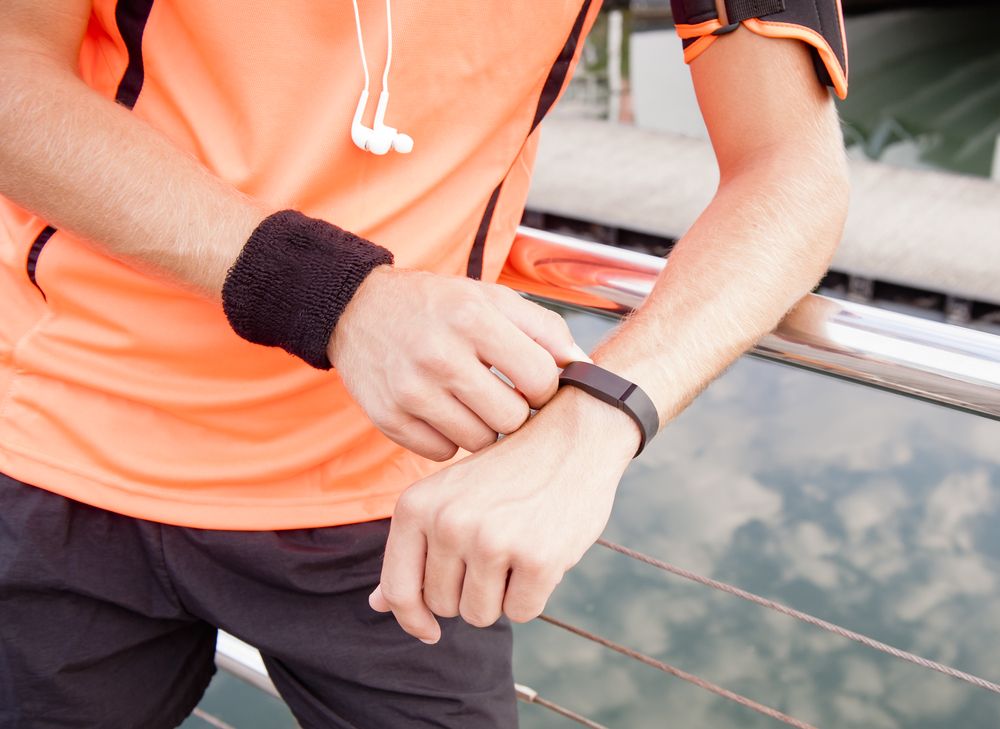Top Class Actions’s website and social media posts use affiliate links. If you make a purchase using such links, we may receive a commission, but it will not result in any additional charges to you. Please review our Affiliate Link Disclosure for more information.

The plaintiffs’ argument responds to U.S. District Judge James Donato’s request that both sides in the Fitbit class action lawsuits brief the issue of arbitration.
The Fitbit lawsuits allege Fitbit exercise trackers fail to accurately monitor the users’ heart rate.
Judge Donato asked the parties to discuss whether two recent California court precedents dictate that the current Fitbit class action lawsuits should be referred to arbitration.
Plaintiffs say that the Fitbit terms of service “lack clear language unambiguously referring any and all disputes, including the threshold question of arbitrability, to an arbitrator.”
They say those terms provide only that the American Arbitration Association “will administer the arbitration under its Commercial Arbitration Rules.”
This language does not specifically provide that arbitration will govern questions about threshold issues like arbitrability, the plaintiffs say.
In that way, they argue, the Fitbit language is significantly different from the language at issue in the previous court cases, which provided for arbitration of “any controversy or claim” and “any and all disputes.”
Plaintiffs also point out that the Fitbit terms of service “contemplate that a ‘court of competent jurisdiction’ will determine the validity and enforceability of the agreement’s terms.”
They argue that when an arbitration clause includes both language like that and a clause delegating disputes to an arbitrator, the resulting ambiguity renders the delegation clause invalid.
The first of these two Fitbit lawsuits began early in 2016. Plaintiffs Kate McLellan, Teresa Black and David Urban claim the Fitbit PurePulse heart rate monitors fail to accurately record the user’s heart rate, particularly during heavy exertion.
Their claims were later consolidated with a related case brought by plaintiffs Judith Landers, Lisa Marie Burke and John Molenstra.
Black claims that during a workout, her Fitbit Charge HR clocked her heart rate at 82 beats per minute, while a measure by her personal trainer recorded it as 160 bpm.
Urban says his Fitbit Surge consistently under-recorded his heart rate by as much as 15 to 25 bpm.
The plaintiffs amended their claims in May 2016 to cite a new study that purportedly shows Fitbit fitness trackers are not accurate.
According to the plaintiffs, researchers at Cal Poly tracked the heart rate of 43 athletes through activities like jogging, jump rope and stair climbing using both Fitbit PurePulse Trackers and an electrocardiogram.
The researchers reported the Fitbit recorded heart rates that were off by an average of 19.2 bpm during moderate to high intensity exercise.
They concluded the heart rate data provided by the Fitbit devices do not provide a meaningful estimate of the wearer’s heart rate.
The plaintiffs are represented by attorneys Jonathan D. Selbin, Elizabeth J. Cabraser, Kelly M. Dermody and Kevin R. Budner of Lieff Cabraser Heimann & Bernstein LLP, Robert Klonoff of Robert H. Klonoff LLC, and Adam C. McCall, Lori G. Feldman, Andrea Clisura and Courtney E. Maccarone of Levi & Korsinsky LLP.
The Fitbit Fitness Tracker Class Action Lawsuits are Kate McLellan, et al. v. Fitbit Inc., Case No. 16-cv-00036-JD, and Judith Landers, et al. v. Fitbit Inc., Case No. 16-cv-00777-JD, in the U.S. District Court for the Northern District of California.
UPDATE: On Sept. 26, 2016, the plaintiffs in a Fitbit class action lawsuit are asking for a federal judge’s help in getting the defendant to respond to requests for discovery documents.
UPDATE 2: On Jan. 9, 2017, Fitbit urged a California federal judge to compel arbitration in a proposed class action lawsuit alleging the company’s popular wearable fitness trackers do not accurately record heart rates.
UPDATE 3: On June 5, 2018, a California federal judge has decided to allow the majority of claims in a class action lawsuit that alleges Fitbit devices cannot accurately read heart rates as advertised.
ATTORNEY ADVERTISING
Top Class Actions is a Proud Member of the American Bar Association
LEGAL INFORMATION IS NOT LEGAL ADVICE
Top Class Actions Legal Statement
©2008 – 2024 Top Class Actions® LLC
Various Trademarks held by their respective owners
This website is not intended for viewing or usage by European Union citizens.















4 thoughts onFitbit Class Action Plaintiffs Want Court to Rule on Arbitration Clause
UPDATE 2: On Jan. 9, 2017, Fitbit urged a California federal judge to compel arbitration in a proposed class action lawsuit alleging the company’s popular wearable fitness trackers do not accurately record heart rates.
UPDATE: On Sept. 26, 2016, the plaintiffs in a Fitbit class action lawsuit are asking for a federal judge’s help in getting the defendant to respond to requests for discovery documents.
I had to return mine because my readings were not accurate.
Should be a class action started for those faulty bands…